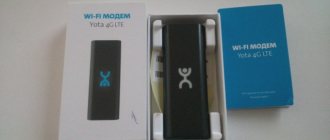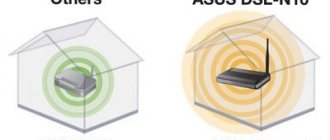Types of SIM cards
SIM cards are a subscriber identification module of a telecom operator. Several decades have passed since their launch until the start of mass sales, and during this time their shape and size have improved. This process was forced. First, smartphones appeared on the mobile markets, and there was simply not enough space under the back cover for parts. Technologies have improved, user demands have increased, batteries are larger, phones are thinner, and there is less space.
This evolution of cards allowed them to be reduced by almost half, and modern retractable slots significantly freed up space for other parts.
Let's look at what types of sim there are, what their features are, and how to insert a sim:
- The full-size one (which many people didn’t even know was available) is the largest in the line, with the perimeter like a bank card. It appeared in 1991 with the first wave of popularity of cellular communications among ordinary residents. It is not used in modern phones; sometimes you can find cars with similar “innovations” a la the 90s.
- Mini-SIM - still used for devices manufactured from the 2000s to the early 2010s, supports 2G and 3G.
- Micro-SIM - appeared in 2003, but is currently considered the most used generation of communication modules. Supported by all manufacturers of modern gadgets with 3G and LTE.
- The smallest is the Nano-SIM, which looks like its predecessor, but without the plastic edges. It appeared five years ago and is used in all models of the Apple brand and some other premium segment manufacturers.
All types of SIM cards are inserted the same way - into the designated slots in a smartphone or tablet. It is impossible to say exactly where the stand is located, since manufacturers reserve the right to place them anywhere, according to their design concept. Sometimes new phones have a sticker with step-by-step instructions; it can also be found in the User Guide.
How to install two SIM cards in a smartphone
Most gadgets have the ability to install two SIM cards in addition to a memory card. The user can put 2 SIM cards in the battery compartment or in the hybrid tray and use both. It is necessary to take into account that the main one for calls, correspondence and 4G Internet operation will be the SIM card installed in the slot with the SIM1 indicator. The second SIM card placed in SIM2 will only be able to receive 3G signals.
To install 2 SIM cards in the battery compartment, you need to do the following:
- Turn off the device and remove the back cover from the phone. Remove the battery and find the SIM card slots;
- If necessary, cut the SIM cards to fit them to the size of the slot, or remove the SIM cards from the plastic if there is a combination card;
- Install SIM cards according to the signs (pay attention to SIM1 and SIM2). The contacts of the chips must match, otherwise the SIM cards will not work correctly;
- Turn on the phone and check the operation of the SIM cards.
To install 2 SIM cards using a special tray, the user will need:
- Turn off the device to avoid problems in the future. Using a paperclip, you will need to remove the tray from the phone body. To do this, press the end of a paper clip into the hole near the hybrid tray;
- You will need to measure the SIM cards, or remove them from the combined card. The tray uses Nano-sim format. They are installed according to the picture below;
- As a rule, the main SIM card SIM1 is located in the first small compartment, and the second SIM2 is in the second. Some users prefer to use a memory card instead of a second SIM card.
- After installing 2 SIM cards (or a SIM card and a flash drive) into the compartment, you need to place the hybrid tray back into the phone. Next, the device turns on and the user checks that it is working properly.
There is another method that owners of a hybrid tray use, but it can damage the SIM card and flash drive. With its help, you can successfully use 2 SIM cards and MicroSD. If you carefully follow the entire algorithm of actions, the cards will function properly:
- The device will need to be turned off. The tray should be removed from the compartment as described in the previous algorithm. The first SIM card, SIM1, is cut off and installed in its compartment;
- The main manipulations occur with the memory card and the second SIM card. You will need to remove the chip from the plastic. To do this, take a lighter and tweezers (it’s convenient for them to hold the card), and the plastic is heated on the side of the operator’s logo. The microcircuits should not be damaged;
- It is necessary to carefully wipe off any remaining glue from the chip. You should make sure that the SIM card is firmly attached to the flash drive. Using Moment glue, attach the chip to the flash drive as shown in the picture. MicroSD contacts should not overlap the chip. After returning the tray to its place, you should check the operation of the device.
Installing a SIM card
Traditionally, manufacturers place card holders on the right side of the case (if the cover is not removable), or directly under the battery, if it is removable. The following instructions are suitable for owners of the latest type of gadgets:
- Check if your phone is turned off.
- Detach the back panel.
- Locate the small indentation between the case and the battery.
- Remove the battery.
- There you will see SIM card slots. They come in different types: separate and two-story. The side you want to hold up when inserting will be shown next to the holder. As a rule, it is inserted with the gold contacts facing down.
- Carefully insert the battery back. Check that it fits snugly.
- Return the lid until you hear a characteristic click. They will mean that the lid is in place.
In the video you can see what to do with modern models whose lids cannot be removed:
Here's another video with a useful life hack:
https://www.youtube.com/watch?v=v7Fe1E7jmp4
Settings
Modern smartphones and SIM cards do not require manual connection. When you first launch it on a new device, you will receive a package of free settings from your mobile operator for all types of cellular services.
For dual-SIM mobile devices, control can be a little difficult for a beginner. You can choose a SIM for certain actions by default, or choose it yourself for every call and message.
New number
And here is another solution to the problem.
If you are thinking about how to make a micro-SIM card from your old SIM card, then you don’t have to worry and buy yourself a new number. Yes, it is not always convenient, but it is fast and safe. It is not always possible to change a SIM card to a micro one. For a modern person, staying in touch is very important. We have the opportunity to connect a new number and notify all contacts about the changes
Take your passport with you and go to the nearest mobile phone store. There, tell us what type of card you want and then go through the short application process.
After this, all that remains is to select a phone number and “squeeze” the SIM card out of the hole. Now there are 2 in 1 options on sale. That is, if necessary, you can get the old version, or you can get the new one. You will see outlines for extrusion. So replacing a SIM card with a micro one is not so difficult. If, of course, you know what to do and in what order.
Will a regular SIM card fit into the micro-sim slot?
You can cut a regular size card to micro-sim dimensions if the card is old. However, it is much easier and safer to contact a service center, where they will give you a new SIM in the form of a transformer - all popular sizes.
If the module urgently needs to be replaced with a smaller one, you can cut it manually with ordinary sharp scissors.
Other options
The plastic adapter that comes with the card upon purchase will help you install Nano-sim to Microsim in your old phone. Remember when you squeezed plastic out of a special mold? Save it - this is the easiest way to get what you want without effort.
There is a second option - let's discuss how to make a regular card from a nano-SIM with your own hands and insert it. You can cut a holder from scrap materials!
- Stock up on plastic forms - this could be an unnecessary bank or discount card;
- Take a strong knife or strong scissors, arm yourself with a ruler;
- Carefully draw the silhouette of the future holder and cut it out along the lines.
SIM card malfunctions
Users guess about their malfunction when the OS does not see the module and does not indicate it with the corresponding icon. The reasons may be:
- The SIM has expired and is not intended for further use.
- It has mechanical damage - scratches, chips and breaks.
- Failed trimming. We mentioned it above.
- The phone's firmware is tailored for a specific buyer.
- Problems with the slot.
- Failures in the operating system and software.
- The contacts were damaged during installation.
- Dirt got on the card holder.
In most cases, the card needs to be replaced, or the phone needs to be sent to a technician for diagnostics, as these can be either hardware or system problems.
Adapter
How to make a micro-SIM from a nano if you bought a brand new smartphone?
Have you carefully chosen the color of the case, looked for a suitable case and headphones, but forgot to specify the slot size? Or, on the contrary, did you temporarily exchange a modern device for an old phone? Whatever the reason, a SIM card adapter from nano to regular or micro will come to the rescue! This is a special holder made in the shape of a larger card, allowing you to insert a nano-SIM instead of a micro-SIM. You can choose one of two types of adapters:
- Outline. The plastic form with a hole is equipped with a sticky label to hold the card;
- Backed. The form is equipped with a plastic wall on one side for convenient holding of the smartphone inside.
An adapter that helps you insert a nano-SIM into a micro-slot can be purchased in an online store or hardware hypermarket, or in operator communication stores. The cost of the part is low - from thirty rubles to several hundred rubles.
Important! To properly insert a nano-SIM into a regular phone, you need to choose a high-quality device. Please pay attention to the following parameters:
- If the plastic moves freely inside the mold, refuse the purchase - the nano-SIM chip will not hold the micro-SIM in place;
- It is better if the card fits tightly, with some effort, into the micro-SIM holder.
Most often, the adapter comes with a special sanding block that allows you to smooth out uneven edges.
If you can’t purchase an adapter in a specialized store, you need to know about analogue solutions to the problem! Let's discuss little tricks that will help you cope with the task.
Basic methods
Sooner or later, many users want to return their cut SIM cards to their previous appearance. Obviously, for this we will need to take care of some kind of edging that will firmly secure the SIM card in the tray.
In other words, what seems like a problem to us can be solved very simply.
By contacting the nearest communication store or specialized online store, we can find an adapter for such SIM cards on sale. It would be better if we purchased a whole set, which would contain not only an adapter, but also a set of stickers.
They firmly connect the SIM card to the adapter so that the micro-SIM does not fall out. If we didn’t find any stickers, you can use ordinary tape. Usually the adapter costs up to 100 rubles. We can order such a Chinese adapter on Aliexpress.com.
This site also features electronic accessories, SIM card tools, and various mobile device accessories.
- The kit includes an adapter and a pin that will allow us to remove the SIM tray for the iPhone. There are adapters for micro-SIM, mini-SIM and nano-SIM, so these cards can be installed in the most ordinary device.
- We place the SIM card in the adapter and install it into the device.
- Let us add that there are both harder and softer plastic adapters.











